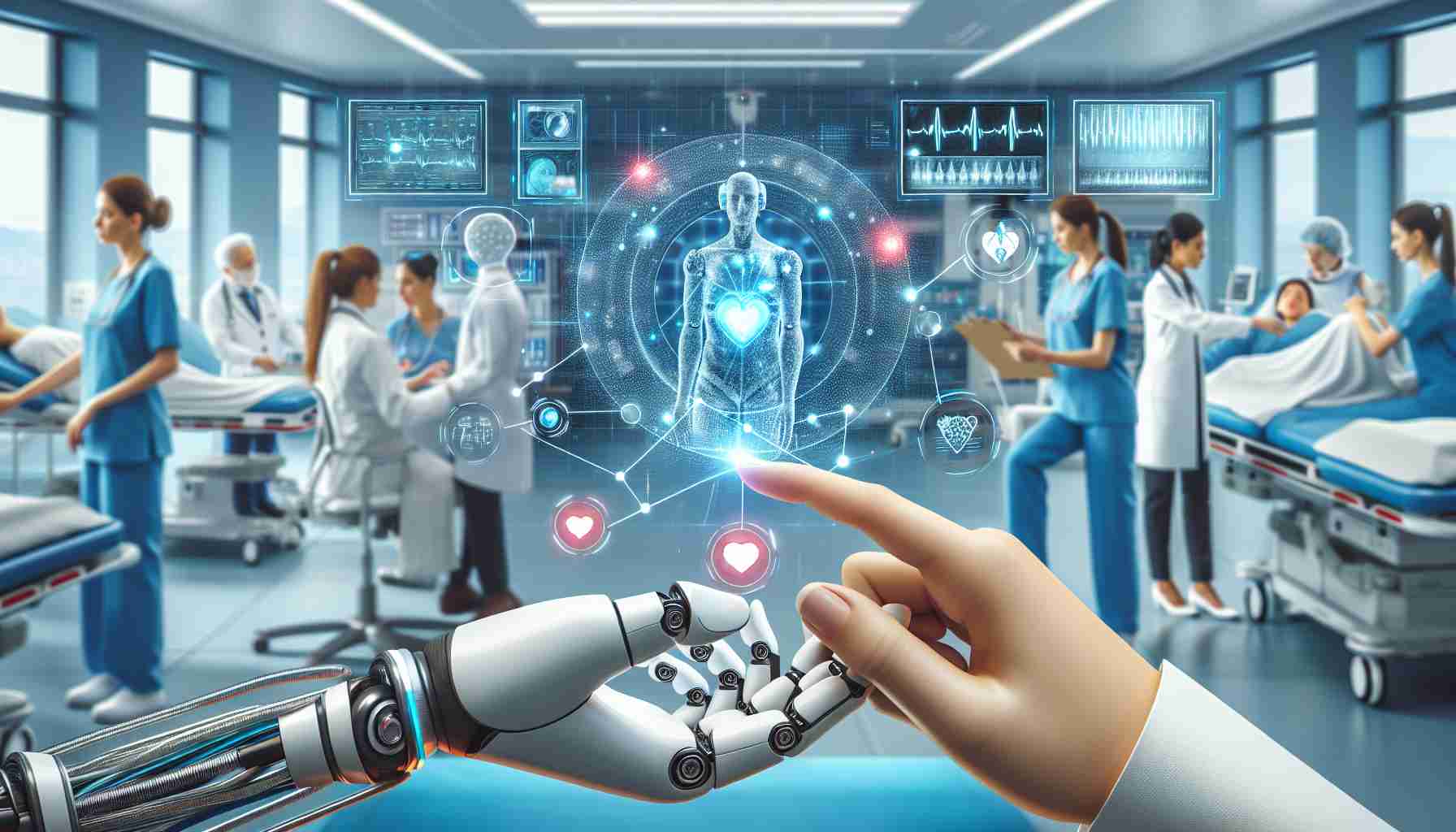Artificial Intelligence (AI) has emerged as a transformative technology across various industries, including healthcare. The integration of AI in healthcare systems has the potential to revolutionize patient care, improve diagnostic accuracy, and streamline administrative processes.
AI algorithms can analyze vast amounts of patient data, including medical records, lab results, and genetic information, to identify patterns and make accurate predictions. This can enable healthcare professionals to diagnose diseases earlier, develop personalized treatment plans, and improve patient outcomes. Additionally, AI-powered tools can assist radiologists in interpreting medical images, reducing the time and potential for human error.
Furthermore, AI can enhance the efficiency of administrative tasks in healthcare. Chatbots and virtual assistants can handle routine patient queries, allowing medical staff to focus on more complex cases. AI can also optimize resource allocation, such as matching patient demand with available healthcare providers and facilities, ultimately improving access to care.
While AI offers immense potential, it is important to address concerns surrounding data privacy, security, and ethical considerations. Safeguarding patient information and ensuring transparency in AI algorithms are essential to maintain trust and uphold ethical standards. Additionally, healthcare professionals need to be adequately trained in understanding and utilizing AI technologies to maximize their benefits.
In conclusion, the integration of AI in healthcare holds great promise for transforming the industry. By harnessing the power of AI, healthcare professionals can enhance patient care, improve diagnostic accuracy, and streamline administrative processes. However, it is crucial to address ethical concerns and ensure transparency in AI algorithms to fully unlock the potential of this transformative technology.
The healthcare industry is one of the major sectors embracing artificial intelligence (AI) technology. According to market forecasts, the AI in healthcare market is expected to reach $51.3 billion by 2027, with a Compound Annual Growth Rate (CAGR) of 43.8%. This growth can be attributed to the increasing adoption of AI and machine learning (ML) solutions in clinical research, drug discovery, diagnostic imaging, patient monitoring, and personalized medicine.
One of the key drivers of this growth is the potential for AI to revolutionize patient care. AI algorithms can analyze large volumes of structured and unstructured patient data, such as electronic health records (EHRs), medical imaging, and wearable devices, to identify patterns and make accurate predictions. This can enable healthcare professionals to detect diseases at earlier stages, develop personalized treatment plans, and improve patient outcomes.
The use of AI in diagnostic imaging is particularly promising. Radiology is a field that generates enormous amounts of medical images, and AI-powered tools can assist radiologists in interpreting these images, reducing the time and potential for human error. For example, AI algorithms can identify cancerous tumors in mammograms or analyze brain scans to detect signs of neurological disorders.
Another area where AI can make a significant impact is in streamlining administrative processes. Chatbots and virtual assistants powered by AI can handle routine patient queries, appointment scheduling, and provide basic healthcare information, freeing up medical staff to focus on more complex cases. AI can also optimize resource allocation, such as matching patient demand with available healthcare providers and facilities, ultimately improving access to care.
However, there are several challenges and concerns that need to be addressed. Data privacy and security are critical issues, as the healthcare industry deals with sensitive patient information. It is essential to implement robust security measures to ensure the protection of patient data and comply with regulations such as the Health Insurance Portability and Accountability Act (HIPAA).
Ethical considerations also arise when using AI in healthcare. Fairness and transparency in AI algorithms are essential to avoid biases and ensure equal access to healthcare services. Clear guidelines and regulations need to be established to govern the use of AI in healthcare, ensuring that AI technologies are used ethically and responsibly.
To fully take advantage of the potential of AI in healthcare, healthcare professionals need to be adequately trained in understanding and utilizing AI technologies. Medical education and training programs should incorporate AI and data science into their curriculum to equip healthcare professionals with the necessary skills and knowledge to harness the power of AI in improving patient care.
In conclusion, the integration of AI in healthcare has the potential to transform the industry by enhancing patient care, improving diagnostic accuracy, and streamlining administrative processes. The market for AI in healthcare is projected to grow significantly in the coming years. However, it is crucial to address concerns regarding data privacy, security, and ethics to ensure the responsible and beneficial use of AI in healthcare.
